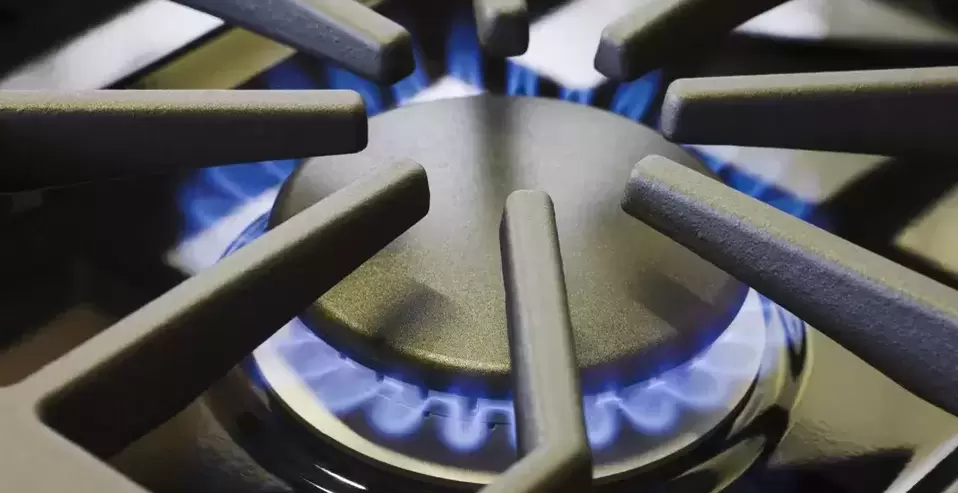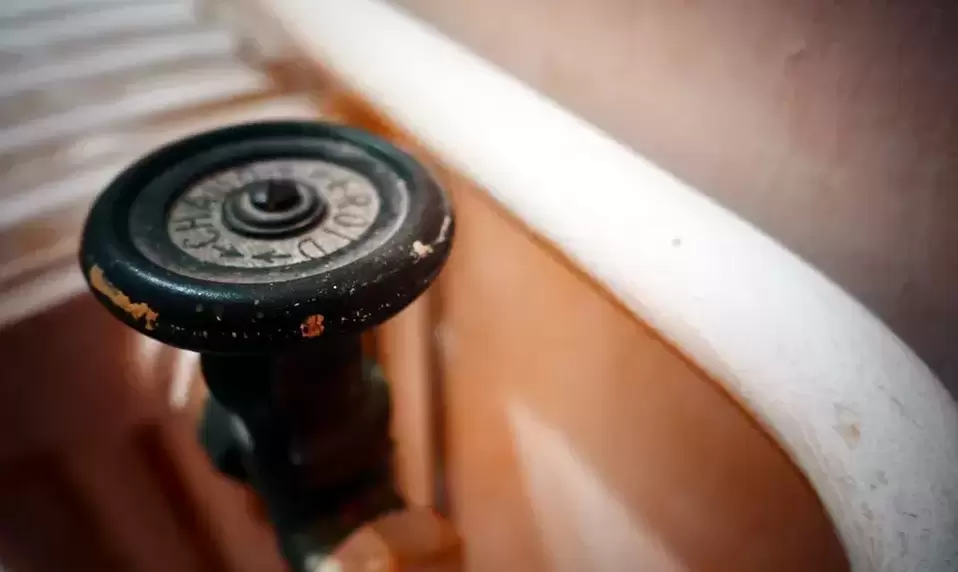|
TO LISTEN, CLICK PLAY
|
Signs Of A Gas Leak

We use natural gas in our homes and businesses for a variety of heating needs. If you install and maintain it as it should, it can be one of the most reliable and safest utilities in our possession. The problem is, as it is used each day, or some of the gas appliances are improperly used, it could lead to wear-and-tear that could cause a leak. Gas leaks can occur in just any location. Some are easily identifiable while others aren’t as readily apparent. For this reason, it is important that you familiarize yourself with the signs and procedures of gas leaks, whether at home or on your business premises. Try to understand these signs well. In this article, we will take a look at some of the most common signs of a gas leak, the best cause of action to take if you discover that there is indeed a leak, and how to avoid future leaks. What is a gas leak? A gas leak is an occurrence where natural gas, carbon monoxide or propane leaks, mostly due to a faulty appliance or gas line. The leak can be anywhere in your home or business premises, both inside or outside. Wherever it may be, fact is, it is still a threat to people, pets, and properties in the area, which is why it should be fixed as quickly as possible. What are the signs of a gas leak? Dead patches or bubbles in the landscape – the gas is transported through pipeline systems and other utility stations, which can be found on the edge of most properties as it is being delivered to buildings. Now, when these pipes enter your property, they become your responsibility, and you will be the one tasked with maintaining them. But if they are outside your property, then they are taken care of by the gas company. These pipes are on the underground, and therefore, noticing a leak can be super difficult. But there are a number of signs that could help you locate them. For instance, natural gas kills vegetation. So, if you were to notice a huge patch of wilted, browned, or dead vegetation, then that’s a sign of a gas leak in a nearby location. Something else is, after raining, look for water pools that correct in low spots. If you notice that there are bubbles forming, then that’s a sign that there is a leak underneath that specific location. Sulfur or rotten egg smell – one of the most common signs of a gas leak is the presence of a sulphuric or rotten egg smell in the location with the gas piping. Gas is colorless and odorless in nature, but as a precaution measure, gas companies add mercaptan, a totally harmless chemical, to create an odour to make it recognizable. Only on carbon monoxide is mercaptan not added, as the gas is completely burned, and so it won’t have any colour or odour. The gas can only be detected by the carbon monoxide detector. What this means is that apart from carbon, you will be able to detect the smell of natural gas when there is a leak. Hissing sounds – if you hear a hissing-like sound coming from a nearby gas line, then that’s a sign of a gas leak, and you should take the necessary precautions to address it before it gets worse.
Soap test – if you suspect the presence of a gas leak in the system, take a soap dish, a cloth rag, and a small amount of water and use them to see if the leak is really there. Mix the water and soap, then power on the system and use the rag and the solution to wipe the pipe down. If you do this properly, you will see bubbles forming on the spot with the leak. There are instances where the leaks are super small to the point where they can’t be detected with your bare eyes or nose. In this case, the soap test is the best way to find out if there is a gas leak. When trying to identify potential leaks through this test, start with those pipes showing some signs of corrosion or have a green discoloration, as they are the most common signs of a potential leak. Physical signs – being continually exposed to carbon monoxide or natural gas undoubtedly trigger some physical symptoms and illnesses, including fatigue, headache, nausea, or dizziness as well as other respiratory problems. The thing is, these same symptoms are exhibited even by our pets, which should be a clear indication that there is something that’s causing these illnesses in the room. When you compare the exposure to carbon monoxide and natural gas poisoning, you will notice that there is a very big difference in that when exposed to carbon monoxide, your face flushes with colour, turning to pink or bright red, whereas exposure to natural gas makes your face lose its original colour. That being said, if anyone – which includes you – in that house starts to show these symptoms, you need to take note of your location. Reason being, if these symptoms afflict or are concentrated on people in a specific location, chances are that there might be a natural gas leak. If it is confirmed that it is indeed a leak, then you should evacuate your family and everyone living in that house immediately, and call a professional to come fix it. You can either call your local utility company, a certified or licensed plumber, or even a fire department if you suspect the safety has been compromised. Is a gas leak dangerous? Repairing gas leaks can be done quickly and safely, provided it is done by a professional technician. The problem is, if a gas leak goes unnoticed for some time, especially one that involves carbon monoxide, it can pose a real threat to the health of people living nearby. And apart from the physical illnesses, the gas is highly flammable, which is why you should always avoid using electrical appliances or even turn on your car’s ignition if you suspect a gas leak in a nearby location. Instead, if you smell the gas in your house, just open all the doors and windows and leave the house for some time. If it is in a rental building, all the occupants in it should take precautions when dealing with the leak. After everyone has evacuated the premises, the homeowner can now call a professional plumber or a local utility company to come locate and repair the leak as soon as possible. Who to call if you suspect a gas leak? If you suspect there is a gas leak on your property, the first call should be to your utility company, then a plumber. Plumbers are able to detect and repair gas leaks, provide the necessary permits, and thereafter, coordinate with the local authorities for final inspections. The utility company only confirms the leak; they don’t repair it. How can homeowners prevent gas leaks? Even though property owners don’t have any control whatsoever over the gas lines, keeping an eye on the gas lines every now and then will go a long way in preventing the occurrence of gas leaks. The following are some of the steps homeowners can follow so as to prevent gas leaks; Always remind your kids to refrain from hanging or playing in any area with visible pipelines or the gas meter on the outside. Hanging on gas pipelines may result in some of them becoming loose or even breaking, which is dangerous. When it comes to the gas meter, keep it clear from debris, snow, or any other obstacle that would inhibit its accessibility during an emergency. Whenever you use your gas appliances, you need to take extra caution. You should never use them as a heat source, for whatever reason, as doing this could lead to a build-up of carbon monoxide in your house. If there is any need to move the appliances, you need to be careful not to break the gas line when doing so. Also, you should never pile up objects near the gas appliances. Reason being, the appliances need oxygen to operate properly, and having any flammable objects can be extremely dangerous. And if you are planning to dig a hole somewhere on your property, you need to call 811 first before embarking on the job. This service helps you pinpoint the gas line so that you won’t hit them as you dig. It is always recommended that a homeowner hires a professional plumber to inspect the plumbing system in his or her home, at least once a year. It is through visual inspections of the gas lines, exterior gas connections, and gas hook-ups that the homeowner is able to stay on top of any repair in the future if needed. Moreover, the homeowners are also advised to have an HVAC specialist inspect and maintain their air conditioning systems and furnace a few times in a year. While maintaining, the contractor is able to ensure that no carbon monoxide or any other gas is leaking. If you suspect that you have a gas leak in your property, get in touch with Pool Leak Detection on 18052887004, and it will be taken care of. |
|
Helpful Resources For Your Swimming Pool
- 5 Tips Of Pool Leak Detection
- 10 Signs You Have A Water Main Leak
- How To Remove Pool Algae
- How To Fix Cloudy Pool Water
- Understanding Pool Cartridge Filters
- Understanding Pool Chlorine
- Common Pool Leaks
- Pros & Cons Of Hiring Leak Detector
- Pool Leaking Vs Water Evaporating
- Low Water Pressure
- Detect An Irrigation Leak
- Warning Signs Of A Slab Leak
- Pool Skimmer Leaks
- Pool Leak Detection Using Ultrasound
- 7 Tips To Keep The Pool Swim-Ready & Safe All Summer Long




